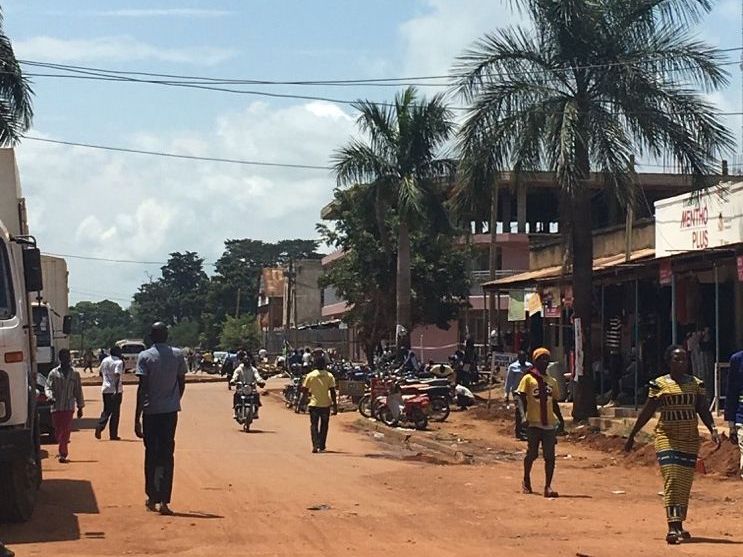Youth and Ethics: fieldwork in (post-)conflict Uganda
| Date: | 01 November 2018 |
| Author: | Julia Doornbos |

Northern Uganda has been the battleground of the infamous Lord’s Resistance Army (LRA) from 1986 until 2006. Led by Joseph Kony, this rebel group waged war and terrorized the Acholi region, to take down Ugandan president Yoweri Museveni and to establish a state according to (Kony’s version of) the Ten Commandments of Christianity (Pham et al., 2009; van Acker, 2004). It is estimated that during this period a total of 100,000 civilians were mutilated and killed, and between 52,000 and 75,000 individuals were abducted to serve as soldiers and sex slaves (‘wives’) for the rebel commanders (Pham et al., 2009). The vast majority of these abductees were children, who were taken from their villages and who served the LRA in periods varying from weeks to multiple years ‘in the bush’ (Angucia et al., 2010; Pham et al., 2007). Furthermore, villages in the region were regularly raided and consequently, over 1,5 million individuals were displaced and lived under harsh circumstances in 251 internally displaced persons (IDP) camps in Northern Uganda (van Acker, 2004; UNHCR, 2012).
The country is currently one of relative stability, however, is the community and in specific, the youth finding their way in this post-conflict situation? In July 2018, I participated in a summer school of the University of Groningen research network Youth, Education and Work (YEW) (organized by Prof. Dr. Jacques Zeelen and Dr. Josje van der Linden) in Gulu, Northern Uganda. The summer school focused on youth in Gulu, to gain an understanding of the living conditions nowadays, the way they cope with the recent history and how they look at the future. In order to do so, the summer school brought together students, academics and practitioners from across the world and through lectures, workshops and fieldwork, the participants gained a greater understanding of the daily lives and challenges of youth in and around Gulu. Within a smaller research group, we explored if and how youth in Gulu currently experience a state of peace. In particular, we studied what Gulu youth understand as peace, how they experience peace, or a lack thereof, in their daily lives and lastly, what their role is or should be in making and sustaining peace. In a period of three days, short structured Interviews were conducted with thirty individuals between fifteen and twenty-nine years old and NGOs working with youth groups.
I had some experience with research in foreign contexts, yet, fieldwork in a (post-)conflict area was a first. Every person we met was willing to share their experiences, both positive and negative, even without explicitly asking. Some would even describe in great detail their experiences of abduction, captivity and their return home. One of the summer school participants had a conversation with a man who shared his wartime experiences while continuously crying. For me, these encounters were unexpected and sometimes challenging. How to respond to individuals who describe how family members and fellow villagers are mutilated or killed? How removed should one be as a researcher, to ensure demands of objectivity? These experiences during the fieldwork highlighted the importance of ethics in research, yet, also demonstrated that it was not as straightforward as discussed during lectures.
Various situations during the fieldwork highlighted these ethical dilemmas and the need for constant reflexivity and consideration of research objectives, benefits and harm. For instance, while visiting NGOs and signing visitor’s registers, I saw that some NGOs had people coming in multiple times a week for interview inquiries. If all these requests were answered, were they not over-researched? Did they gain anything from sharing their stories and did other researchers give something back? Another NGO proposed a visit to a centre with formerly abducted girls and their children born in captivity. Would it be ethical to visit these girls, in which they might relive their atrocities, solely for a small research project? Lastly, some participants shared their personal stories to gain sympathy and as an opportunity to ask for financial support. How to respond to them and how to be realistic in their expectations of you, not only as a researcher but as a human being?
In their research in Northern Uganda, Angucia et al. (2010:228) described that “it felt more ethical to go with the heart”. As the experiences of their participants were extremely personal and sensitive, “condescending ethics” could be counterproductive in understanding and handling ethical issues. As such, for them “ethics was about sharing… or is it celebrating our common humanity in a conflict situation?” (Angucia et al., 2010:229). Personally, I was touched by the openness of both the Ugandan students and research participants during the fieldwork. They shared their dreams and difficulties but also highlighted their resilience and strength in a region where conflict has never been far away. At first, it was challenging to hear about atrocities first-hand and to realize that every person living in Gulu is in a way affected by the war. These experiences during the YEW summer school taught me to be reflexive of the role of a researcher in specific research contexts. But foremost, it taught me how to combine being both a researcher and a fellow human being.

